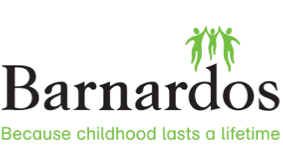Family Support

Family Support
Family Support seeks to enhance family well-being and strengthen parenting capacity to reduce problems later in a child’s life.
We respond to the individual child and family by assessing their needs and carefully tailoring a package of services to respond to those needs. Family Support is about providing help to children and families who are vulnerable and in need of support.
Barnardos Family Support Projects are based at the heart of their local communities. Some family support projects have a particular focus, for example, families impacted by parental drugs misuse, teenagers and special needs however most offer a wide range of services.
The objective is to equip families with the necessary skills to better cope and thrive, particularly in times of crisis.
What can a family support project do for me?
No two family support services are the same because no two families or communities are the same. Each Family support project offers a range of services based on the needs of the children and families in their community.
We work with families on some of the following issues:
- Parental separation
- Children exposed to trauma
- Homelessness
- Bereavement / loss
- Domestic violence
- Parental substance abuse
- Parent-child bonding and attachment
- Parental mental health
- Children leaving state care
- Anxiety in very young children
Types of support
Individual One-to-One Targeted Intervention
This work is aimed at children dealing with challenging experiences that are likely to impact on their development. Experiences such as parental addiction, domestic violence, physical and emotional abuse. This one-to-one support is delivered on a weekly basis.
Joint Child-Parent Work
Tailored intervention working with parents and children in a therapeutic session together. Barnardos approach to this work draws on evidence from attachment theory and child development. This combined support is delivered on a weekly basis.
Partnership with Parents Programme (PwP)
PwP is an intensive, module-based programme for parents who require support to parent more effectively. The programme is delivered within the family home to increase its impact.
PwP work with parents on:
- Parent-child relationship and communication
- Child Behaviour
- Routines
- Education
- Physical development
- Crisis management
Friendship Group
Friendship Group is for children aged between 6-9 years or 9-11 years who are struggling with friendships and / or experiencing isolation. This proven programme is rooted in a strong understanding of child development.
Friendship Group is about giving children a place to develop and practice the skills they need to form healthy friendships.
The focus is on building social skills and the ability to self-regulate emotions.
Each group is made up of six children and two staff who meet every week for 14 or 22 weeks depending on the age of the group.
Family Welfare Conferences
A family welfare conference involves a special family meeting supported by professionals to discuss concerns about a child’s welfare. It is characterised by a child-centred approach which also draws in support for the young person from their family, friends and people important to them.
It allows for early intervention and enables families to provide their own solutions to family difficulties. It typically involves children aged 6-18 years but is provided for younger children also.
Where are Barnardos Family Support Services located?
Barnardos Family Support Services are provided throughout Ireland in communities that face difficulties such as poverty, disadvantage, and / or lack of opportunity.
Family Welfare Conference
What is a Family Welfare Conference?
A Family Welfare Conference (FWC) is a special meeting which is held when a child or young person is experiencing difficulties. The meeting involves the child, family, some of the people who are important in the child’s life and professionals. At this meeting, the family are supported by the other people in attendance to make a plan to support the child or young person.
The aim of a Family Welfare Conference (FWC) is that those who are close to the child or young person come up with solutions to address the needs of the child, and which can work in their day-to-day lives.
The motivation behind a Family Welfare Conference (FWC) is that the most important people in the child’s life, who know them best, are involved in thinking about what the child needs, how to keep them safe, and are key in making any decisions. Being part of the process helps build their understanding and their commitment to carrying-out the plan.
Professionals take part in the meeting to make sure the child or young person remains at the centre of the plan, and that any decisions made support the child’s development and meet the requirement to keep the child safe.
Family Welfare Conference (FWC) meetings usually take place where there is a concern for the child’s welfare or safety.
Does it work?
In 2009 an independent report found that the majority of Family Welfare Conferences resulted in positive outcomes for the children, particularly for children in care and for those who were not regularly attending school.
I was amazed to watch the Family Welfare Conference meeting unfold and to see a family who are normally at logger-heads come up with a number of workable solutions to their problem. It seemed like an empowering position for the family and all the suggestions were very doable. A safe forum for all the family members to speak and be heard, may seem like a simple, logical thing, but it rarely happens in reality.
Advocate who participated in 2009 study
